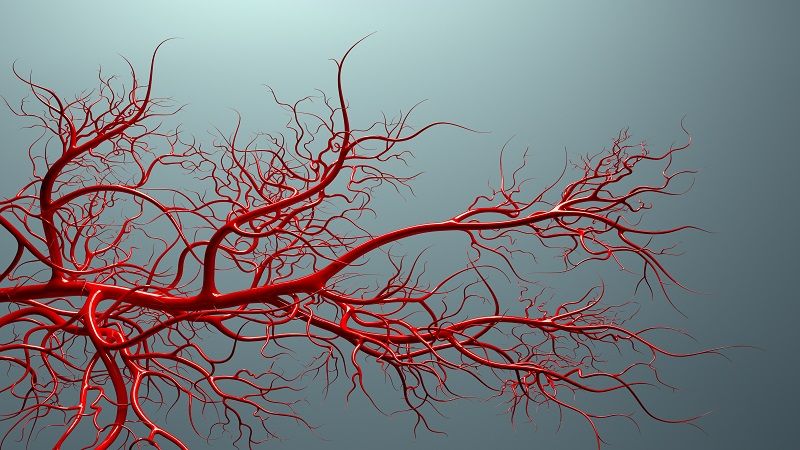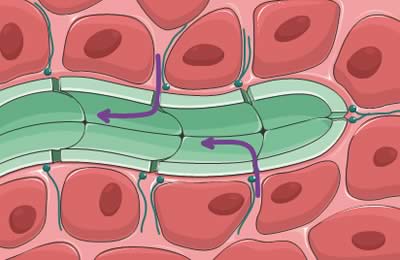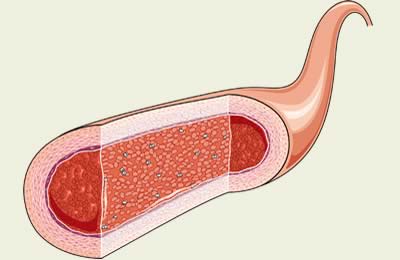
Grant to study blood vessels and lymphatics in PKD
The PKD Charity has awarded a £14,960 research grant to a group at University College London (UCL), who are looking to develop new treatments for polycystic kidney disease (PKD).
Headed up by Professor David Long and Dr Daniyal Jafree, the group will research whether therapies that act on the blood vessels and lymphatics of the kidney could help to treat PKD.
Together, the blood vessels and lymphatics of the kidneys are known as their vasculature. Blood vessels carry oxygen, nutrients and blood cells to and from the kidneys. Lymphatics carry away debris and dying or inflammatory cells from the kidneys.

Lymphatic vessel draining spaces between cells
Using mice with PKD, work in the UCL laboratory has shown that the vasculature is misshapen in kidneys with cysts. When the researchers administered a protein called vascular endothelial growth factor C (VEGF-C) to the mice (which helps blood vessels and lymphatics to grow) they found a reduction in the size of kidney cysts. There was also an improvement in kidney function.
For these reasons, the UCL team think that treatments that help blood vessels and lymphatics to grow (like VEGF-C) might be a promising new way to treat PKD. To identify these potential treatments so they can be tested in clinical trials, the team needs to understand how and why the kidney vasculature is altered in PKD.

Blood vessel carrying blood
They think that the key to identifying new treatments might be endothelial cells. These cells make up the inner lining of blood vessels and lymphatics and allow them to function. How individual endothelial cells are affected by PKD — and what this means for the kidneys — is unknown.
The team will use sophisticated technology called single-cell RNA sequencing (scRNA-seq) to find out how endothelial cells are affected by PKD. First, they will collect endothelial cells lining the blood vessels and lymphatics of mice with or without early PKD. They will then use scRNA-seq to read thousands of genes that individual endothelial cells are using and to find out how these genes are altered by PKD. This will help them to understand the early changes to the kidney vasculature that happen in PKD.
The findings of this research could help to develop therapies to correct early changes in PKD kidney vasculature. The ultimate aim is to protect the kidneys of people with PKD before their kidney function falls.
For regular updates about the group and their progress, follow Professor Long’s laboratory on Twitter: @UCL_ICH_Kidney
Images from Servier Medical Art by Servier, licensed under a Creative Commons Attribution3.0 Unported License.
- Hits: 3205

